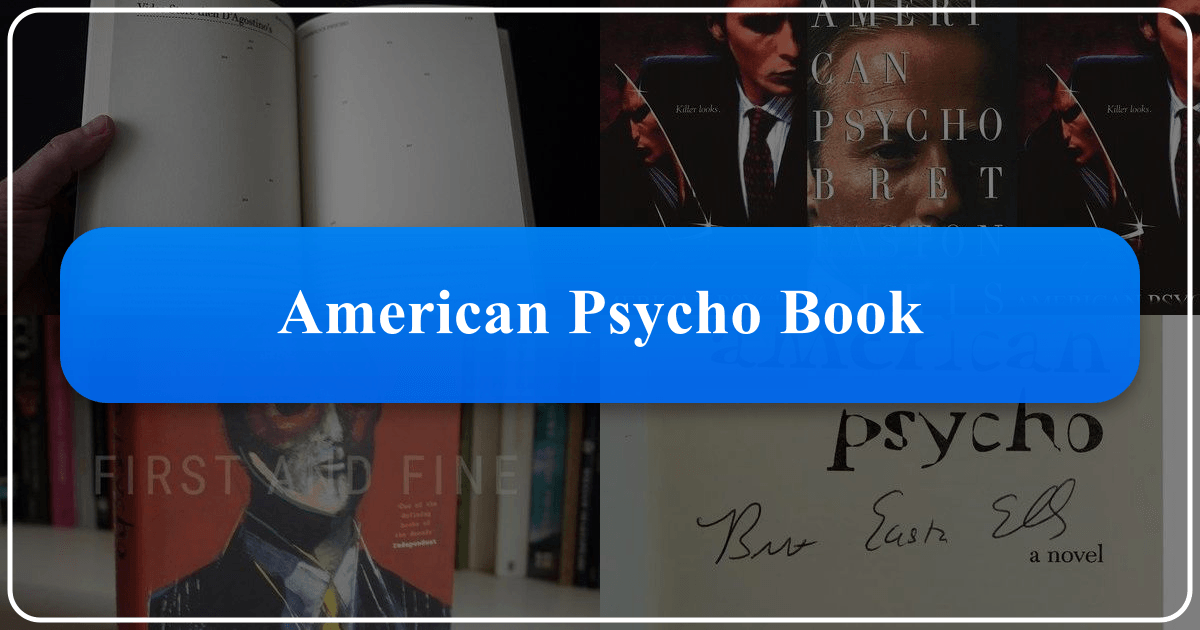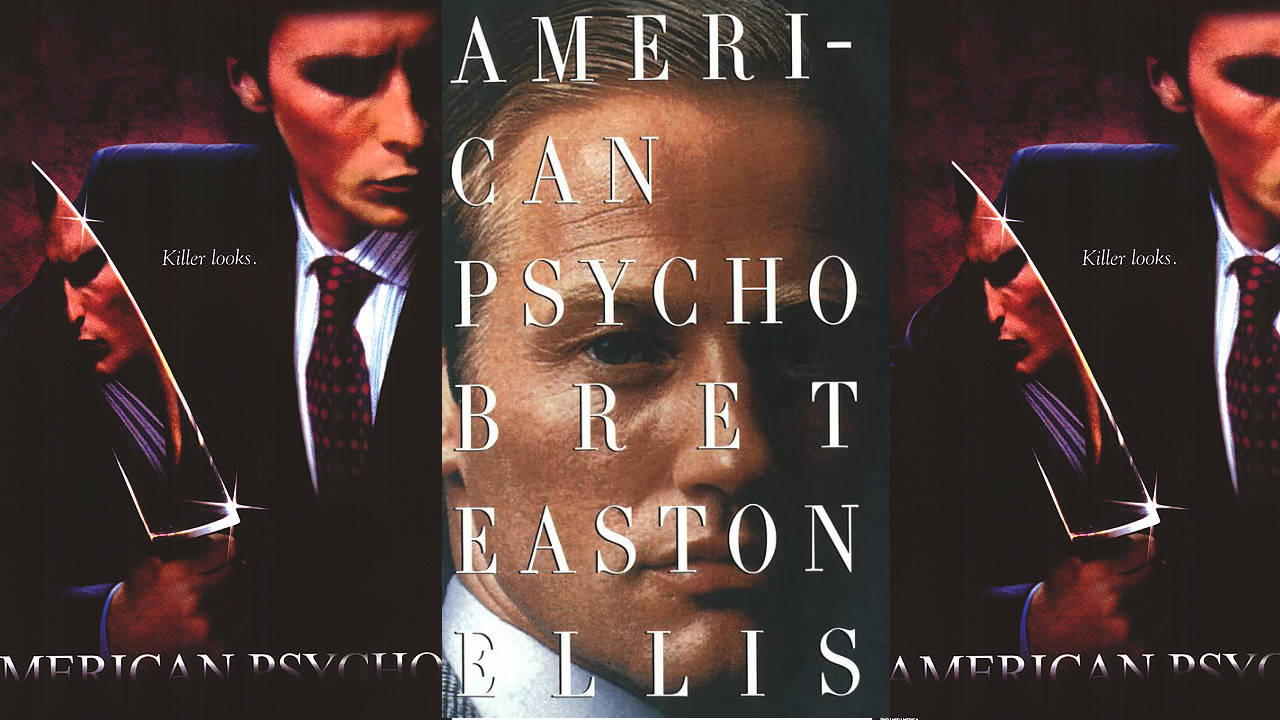American Psycho Book: A Deep Dive into Genre, Author, and Cultural Impact

Bret Easton Ellis’s American Psycho, published in 1991, is a controversial and influential novel that continues to spark debate and analysis. Its exploration of violence, consumerism, and the emptiness of 1980s Wall Street culture has cemented its place as a modern classic, influencing subsequent literature and adaptations. This article will examine American Psycho through various lenses, exploring its genre, authorial style, educational value, and enduring cultural impact.
Genre and Literary Classification
American Psycho defies easy categorization. While primarily classified as a psychological thriller, its blend of horror, satire, and dark comedy complicates its genre identity. The novel’s graphic violence and exploration of psychopathy place it firmly within the horror genre, yet its sharp social commentary and cynical wit make it a powerful work of satire. The narrative’s unreliable first-person perspective, delivered through the detached and meticulously detailed observations of Patrick Bateman, contributes to its unsettling atmosphere and enhances its psychological thriller aspects. The novel also incorporates elements of black comedy, using humor to juxtapose the horrific acts with the superficial concerns of Bateman’s world. This multifaceted approach to genre reflects the novel’s complex and unsettling exploration of human nature. Its stylistic choices, including the detailed descriptions of consumer products and the ambiguous nature of the violence, contribute to its categorization as postmodern literature.

Bestseller Status and Literary Influence
The novel’s success as a bestseller contributed significantly to its influence. Its commercial success helped bring attention to its challenging themes and unconventional style, widening its reach beyond literary circles. The widespread discussion surrounding the novel’s graphic content further amplified its impact, establishing it as a key text in conversations about censorship and artistic expression. This sparked a dialogue about the boundaries of literature, challenging readers to confront uncomfortable realities. American Psycho’s influence extends to subsequent works exploring similar themes, creating a subgenre of dark satire focused on the moral ambiguities of wealth and power.

Bret Easton Ellis: Authorial Style and Inspirations
Bret Easton Ellis, the author of American Psycho, is known for his distinctive writing style. Characterized by its detached, cynical tone and meticulous descriptions, his prose often reflects a sense of unease and alienation. The style in American Psycho is particularly noteworthy for its extensive detailing of consumer goods and brands. This strategy serves a dual purpose. Firstly, it emphasizes the superficiality and emptiness of Bateman’s existence, highlighting his obsession with material possessions as a way to compensate for his inner turmoil. Secondly, the descriptions function as a form of distancing, creating a buffer between the reader and the graphic violence depicted, and enhancing the novel’s satirical nature. The reader is forced to confront the relentless consumerism alongside the disturbing acts, prompting reflection on their interconnectedness.
Biographies and Inspirations

Ellis’s biography provides context for understanding the novel’s themes. Growing up in the affluent Los Angeles suburbs in the 1970s and 1980s provided a rich background for his exploration of materialism and the alienation of the privileged class. His experiences observing and interacting with this specific social group undoubtedly shaped his depiction of the superficiality and emptiness of Wall Street culture in American Psycho. The novel’s depiction of 1980s consumerism draws inspiration from the societal trends and anxieties prevalent during that era. The novel also reflects his engagement with literary influences, including the works of authors who explore themes of alienation and social critique through unreliable narrators.
Reading Habits, Summaries, and Educational Value
Reading American Psycho requires a certain degree of tolerance for graphic content and an engagement with its unsettling tone. It is not a light or easy read but demands a level of critical thinking from the reader. Summaries of the novel, which can be found in various online resources and literary guides, often focus on the plot and character development, while also pointing out the novel’s primary themes. Summaries provide a concise overview of the events but often fail to capture the novel’s nuances and literary sophistication. For a complete understanding, reading the book directly is essential.
Life Lessons and Educational Value
Despite its disturbing content, American Psycho offers significant educational value. Its exploration of psychopathy, while fictionalized, raises important questions about mental health, violence, and societal factors that might contribute to such extreme behaviors. The novel’s satirical lens is used not simply to shock, but also to expose the shallowness and ethical compromises within particular social groups and their relationship to wider cultural norms. This societal commentary enables readers to reflect on their own values and perceptions. The novel can also serve as a springboard for discussing life lessons about the dangers of unchecked ambition, the destructive nature of consumerism, and the importance of empathy and moral responsibility.
Libraries and Archives
American Psycho is widely available in public libraries and digital libraries worldwide, reflecting its status as a significant work of modern literature. The novel can also be found in university archives and rare collections, highlighting its importance to literary scholarship and cultural studies. The continued interest in the novel ensures its continued availability in these repositories.
Cultural Impact and Adaptations
The novel’s cultural impact is undeniable. Its controversial nature and provocative themes led to significant media attention and public debate, further solidifying its place in the cultural landscape. Its exploration of masculinity and the superficiality of wealth resonated with many readers, leading to extensive analysis in academic and popular discourse.
Adaptations and Awards
American Psycho has been adapted into a successful film, starring Christian Bale, and this further intensified its presence in popular culture. The film’s adaptation, while significantly different from the source material, successfully captured the novel’s atmosphere of unease and dark humor. The novel, while not widely recognized with major literary awards, has achieved lasting cultural recognition and remains a subject of extensive critical study. It has earned its place in numerous “best of” lists and remains a relevant work of postmodern literature.
Communities and Literary Influence
American Psycho has fostered communities of readers and critics who engage with its complex themes and stylistic innovations. The novel’s controversial nature has also led to various discussions and interpretations of its meaning and relevance. Its influence on subsequent literature is particularly notable in the area of dark satire and novels focusing on themes of societal critique, the emptiness of consumer culture, and the psychological complexities of violence.
In conclusion, American Psycho is far more than a simple thriller. Its enduring impact stems from its nuanced exploration of genre, its masterfully crafted prose, and its insightful commentary on societal issues that remain relevant today. It continues to challenge readers to confront uncomfortable truths, prompting a thoughtful engagement with themes of violence, consumerism, and the complexities of human nature. Its status as a bestseller, its numerous adaptations, and the ongoing critical analysis of its work cement its place as a significant and enduring contribution to literature and popular culture.